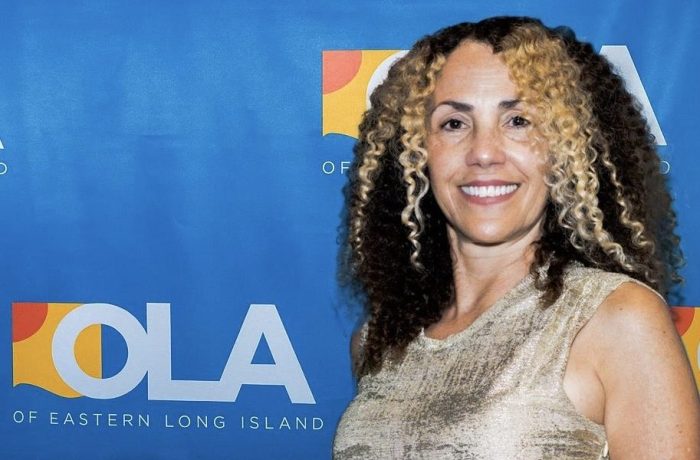Organization operates a facility on 501 South Broadway in Hicksville
Many people would agree that noise levels are on the rise. Ear-piercing sounds emanate from movies screens, concert stages and cranked-up volumes on iPods. And how often, when waiting for a live operator, is one subjected to high-decibel recordings while on hold? There is no denying the prevalence of loud noise these days, resulting in an unfortunate side effect being seen more frequently; namely a progression in hearing loss. This is not only occurring, as typically thought, in older populations, but in younger people as well.
“People need to be aware that hearing loss from prolonged loud noise exposure is irreversible. Many don’t think to protect their ears because the loss is not sudden,” said Tanya Linzalone, director of the Mildred and Frank Feinberg Community Center for Hearing Health at Mill Neck Audiology, who added that over time, constant noise exposure leads to damage of the hair cells of the inner ear, which are vital to our ability to hear.
“This damage is permanent,” Linzalone stressed.
This is why it is so important to raise awareness, particularly among younger generations and those in inherently noisy work environments of the consequences of repeated exposure to loud sounds. While degrees of hearing loss eventually develop, being around high-noise levels over time can lead to another distressing ear disorder too, with or without a loss.
Though not everyone with a hearing loss experiences a condition known as tinnitus, it too, often results from constant exposure to blaring sounds. For Michael Graziose, a 38-year-old plumber from Locust Valley, this was the case. When he began to notice decreased hearing in his left ear, Graziose was also subjected to a continual ringing in the ear. “It got to the point where I couldn’t sleep, the sound was so much more noticeable at night,” he said. Linzalone concurs that while there is no quantitative way to determine just how loud the tinnitus is (as opposed to the ability to measure a hearing loss), people usually do say the sound is louder at night.
“The sound is probably not any worse at night, but is perceived to be, just because it’s quieter all around. With all the competing sounds heard during the day, you’re not as aware of the tinnitus,” she said.
Tinnitus (pronounced either tin-it-us or tin-night-us) is defined as the perception of sound when there is no external sound present, and is characterized by a constant ringing, hissing or other bothersome noise that someone experiences in their ears or head. While repeated noise exposure is the most common cause of tinnitus, other contributors may include head injury, underactive thyroid, neck or jaw disorders, drug sensitivity, cardiovascular disease, the aging process, stress or (rarely) a tumor. According to the American Tinnitus Association, an estimated 50 million Americans experience some level of the condition. For some people, it’s a mild (or temporary) occurrence. For others, like Graziose, the unending noise is life altering.
During the many years working at his family’s business, L. Graziose Plumbing and Heating, Graziose was in frequent contact with roaring boilers and heavy construction equipment. As an avid outdoorsman and longtime (“I got my first drum set at 3,” said Graziose) musician in a rock band, his ears were further exposed to damage.
“No one wore any ear protection while playing music. It’s not that it wasn’t cool, it just wasn’t thought of,” he added.
Graziose began to notice difficulty in hearing about a year ago. He remembers finding it hard to follow conversations, especially in the presence of background sounds, such as a radio playing. It was the tinnitus though, that proved more challenging and led him to seek medical assistance. A number of visits and tests failed to secure much relief.
“Right before coming to the Audiology clinic here at Mill Neck, I was seriously considering starting anxiety medication as a last resort. The constant ringing in my ears was more of a problem than the neck pains I was getting from always turning my head to hear with my ‘good’ (right) ear,” said Graziose.
A few months ago, while doing some plumbing work at the Mill Neck campus, the tinnitus was especially disturbing. A Mill Neck staff member encouraged Graziose to stop in to Audiology that day. After an initial audiological assessment, Graziose subsequently had an MRI to rule out any contributing medical conditions, such as a tumor. Once medically cleared, he had further testing done at Mill Neck, where Linzalone eventually fitted him with a specific hearing device that not only addresses his hearing loss, but also has a program called Zen that manages the tinnitus. (Those experiencing tinnitus without a loss of hearing may find relief with a device known as a “tinnitus masker.”) In addition to random, harmonic tones (called Zen Styles), this unique program can be customized to play a Noise tone that can be useful in controlling the effects of tinnitus. Graziose’s hearing device allows him to once again experience sounds, even “small” ones, especially on his left side, and while he acknowledges that the tinnitus is not gone, it’s now controlled enough where he simply said, “It changed my life.”
Graziose has also taken further steps to protect his remaining hearing. He wears custom-molded earplugs when playing his music and never uses heavy equipment without putting on ear muffs. Linzalone emphasizes the need for everyone to protect their ears from the harmful effects of continual loud noise, especially for people who work in high noise level environments. She said,
“Ear muffs are readily available and should be used by those in ‘loud’ jobs, like construction workers or landscapers,” said Linzalone, who also urged young people to become more conscious in using ear protection, stressing that hearing loss is not just a consequence for older folks anymore. Aside from specific ear protection, simply getting into the habit of turning the volume down can make a difference down the road.
Michael Graziose wholeheartedly agrees. He’s encouraged his brother, who works along with him, to get his hearing tested and always carries protective ear gear to job sites. Graziose has become a dedicated advocate for hearing health and proof that help is available in a number of hearing-related disorders.
Part of the Mill Neck Family of Organizations, the Mildred and Frank Feinberg Community Center for Hearing Health at Mill Neck Audiology features separate, state-of-the-art adult and pediatric testing areas, an assistive listening display and an observation room with a parent observation area. The Center also dispenses hearing aids, distributes assistive listening devices and provides amplification adjustments. Mill Neck Audiology accepts most major insurances. If you or someone you know is experiencing hearing difficulties, know that help is available. Call Mill Neck Audiology a 922-4100, ext. 258 to schedule an appointment.
In addition to Mill Neck Audiology, the Mill Neck Family of Organizations includes Mill Neck Manor School for the Deaf, established in 1951 to help Deaf children unlock their potential through quality education, Mill Neck Manor Early Childhood Center, Mill Neck Foundation for Deaf Ministry, Mill Neck Services for Deaf Adults and Mill Neck Interpreter Services. For more information about any of these programs, please call 922-4100 or visit http://www.millneck.org.


































